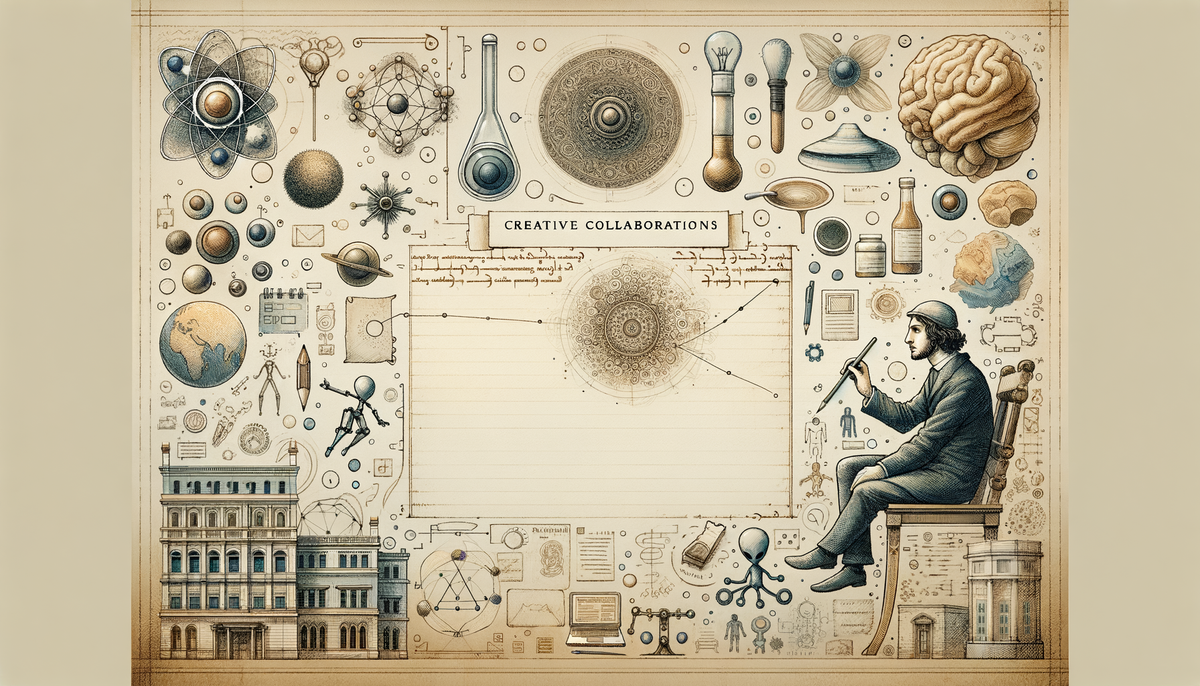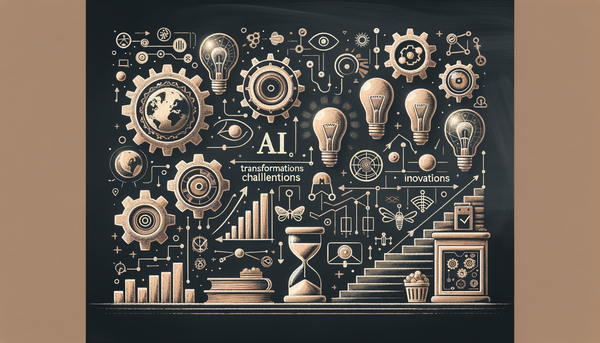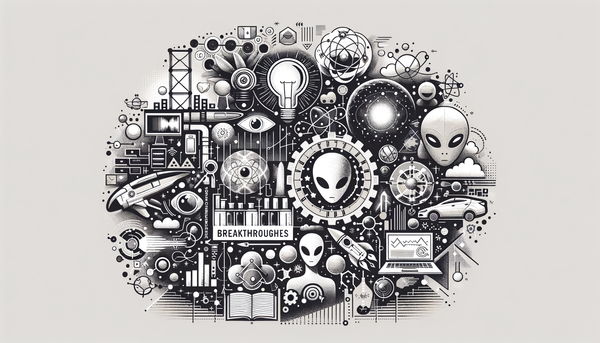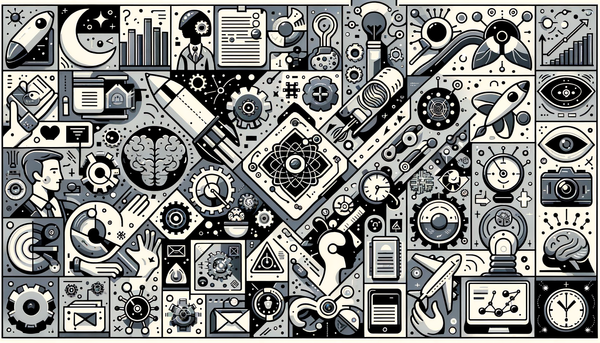Intriguing Updates in AI and Society

Baidu’s bold decision to upgrade its Ernie AI while significantly slashing prices is just one sign of how deeply technology is reshaping industries, from everyday smartphones to the intricate dynamics of global strategy and creative collaborations.
Democratizing AI in a Hypercompetitive Market
Baidu’s strategic overhaul of its Ernie AI models stands out as a prime example of how competitive innovation is being coupled with affordability. By not just enhancing performance in areas like natural language processing and data analysis, but also by making its cutting‐edge tools available at lower costs, Baidu is pushing for broader access across both startups and established corporations. This effort to democratize AI is reflective of a broader trend in which companies are moving away from elitist, expensive technology towards more inclusive models that stimulate widespread adoption.
However, even giants face challenges. Baidu's recent revelation about the “shrinking” demand for its DeepSeek text-based AI highlights the importance of ensuring that technological advancements translate into real-world value. While consumers initially get excited by futuristic capabilities, their sustained interest depends on tangible benefits in productivity and user experience. As the market matures, the spotlight is shifting from mere technical novelty to practical usability.
This dual narrative of innovation and usability is not confined to China. Reviews and discussions in various tech circles, including some insightful sessions on AI Podcast by AI.Biz, reveal that making AI accessible and valuable is a universal challenge, affirming the adage by Fei-Fei Li:
The tools and technologies we've developed are really the first few drops of water in the vast ocean of what AI can do.
China's unique approach extends beyond simple competition. According to analysis by the Financial Times, Beijing appears more focused on domestic stability and strategic enhancement rather than a head-to-head race for global AI supremacy. Instead of simply trying to "win" against rivals, the Chinese model aims at leveraging AI to enhance surveillance, boost productivity in manufacturing, and modernize military capabilities. This reflects a holistic, long-term vision that contrasts with the West's market-driven and competitive innovation framework.
AI in Consumer Technology: A New Epoch for Mobile and Digital Apps
On the consumer technology front, Motorola’s reinvention of its iconic Razr flip phone exemplifies how legacy brands are reinventing themselves by integrating state-of-the-art AI features. The new lineup—comprising models like the Razr, Razr Plus, and Razr Ultra—brings smart gesture-control features and personalized digital assistants into the fold, fundamentally altering how users interact with mobile devices. The strategic collaboration with heavyweights such as Perplexity, Meta, Microsoft, and Google signals a shift in how traditional hardware meets modern AI services.
This device rebirth is timely. In conversations circulating within technology communities, there is an emerging narrative that traditional apps might soon be rendered obsolete by more fluid, AI-driven interfaces. Meta’s CTO, Andrew Bosworth, has foreseen a future where instead of juggling multiple applications, consumers could issue a simple voice command to an intelligent interface that seamlessly orchestrates everything from streaming music to managing productivity. Though such a future might unsettle companies that thrive on app-based revenue models, it heralds an era of convenience and efficiency, where the user experience is centralized and intuitive.
These developments are indicative of a broader revolution in consumer technology—one where devices become smarter and more integrated with everyday life. As noted in updates on the latest AI Podcast by AI.Biz, the blend of robust AI functionalities with sleek hardware not only revives classic designs but also redefines modern expectations.
Consider the Razr Ultra's gesture-controlled activation: a simple yet profound innovation that minimizes the physical interaction required with the phone, making for a smoother, more intuitive experience. Pioneering products like these are setting the stage for a future where your device anticipates your needs even before you articulate them.
Enhancing Creativity and Deep Research with AI
Artificial Intelligence is not just reshaping hardware—it's rewriting the rules in creative industries as well. Microsoft’s subtle inclusion of generative AI in its Surface Pro and Surface Laptop advertising campaign is a case in point. The creative team used AI tools for generating initial scripts and storyboards, saving significant time and resources while retaining human refinement in critical visual details. This collaboration underscores a pivotal shift: AI is evolving into an indispensable partner in the creative process rather than acting as a replacement for human talent.
The integration of AI into advertising campaigns highlights another trend—AI’s role in research-intensive tasks. OpenAI’s recent rollout of a “lightweight” version of Deep Research for free ChatGPT users is designed to let anyone harness the power of deep-dive AI analysis. Although this version comes with usage restrictions, it still represents a unique step toward making sophisticated AI capabilities more accessible. It empowers users to delegate tasks like literature reviews and comprehensive data analysis to an AI tool, streamlining processes that typically require years of human effort.
When I first encountered these augmented research capabilities, I recalled a moment in which seemingly arcane academic pursuits got unlocked by a simple command prompt. It's like inviting a research assistant who tirelessly sifts through mountains of data, simultaneously providing references and citations—all at the click of a button. And with upgrades planned for Plus and Teams users, the future of AI in research seems poised to get even brighter, pushing the boundaries of what is achievable in both academic and industrial settings.
It’s intriguing to see how Microsoft and OpenAI are not only advancing technology but also making it more accessible. These efforts to enrich user engagement and research capabilities have energized the wider community, as reflected in discussions on recent AI developments and trends on AI.Biz.
Navigating Ethical Dilemmas and Responsible AI Usage
The rapid evolution of AI increasingly calls for rigorous ethical considerations. A distressing episode involving a police corporal in Pennsylvania—where AI-generated content was manipulated to produce graphic, unauthorized material—casts a stark light on the potential misuses of technology. While these incidents are deeply troubling, they also serve as a reminder that powerful tools like generative AI require vigilant oversight and robust regulatory frameworks.
Instances of deepfake content, unauthorized surveillance, and breaches of individuals’ privacy underscore that while AI can be a catalyst for innovation, it can also be misused in ways that undermine trust and safety in society. The emphasis now must be on establishing ethical guidelines and accountability measures. As Attorney General Dave Sunday noted in his commentary on the case, even individuals entrusted with authority can stray from ethical use protocols, and thus, continuous monitoring and structured oversight are crucial.
This responsibility falls not only on law enforcement agencies and policymakers but also on tech developers who need to incorporate safeguards right at the design stage. In the words of another familiar voice, ChatGPT reminds us,
I am not a human. I am a machine. But I can learn and adapt.
This self-awareness, if you will, must guide developers in ensuring that AI systems augment rather than compromise our societal values.
Balancing Innovation with Societal Impacts
The influence of AI extends far beyond technology sectors, seeping into economic and social realms. For example, the resurgence of student loan repayments and a downturn in international travel expose deep economic vulnerabilities that are now interwoven with the rapid adoption of digital and AI technologies. The broader discussion here is about balancing technological progress with societal resilience. As we explore the potential of AI, we must not lose sight of its human impacts—be it the potential strain of resuming student loans or the cultural shifts driven by diminishing interpersonal interactions in favor of digital communications.
It’s interesting to note a growing critique in various economic analyses that while AI promises efficiency and new capabilities, it can also introduce subtle detriments. The increasing prevalence of digital assistants might lead to a kind of emotional dependency that could, in a broader sense, diminish our reliance on authentic human connections. At a time when technology assists us in every sphere, striking a balance between harnessing its benefits and protecting our human essence remains a delicate act.
Furthermore, an unusual incident involving AI-generated imagery of a Malaysian durian farm has stirred debates on media authenticity and the potential for manipulated content to fuel controversy. This case, which reignited a heated land dispute over territorial rights and agricultural livelihoods, illustrates how rapidly AI can intersect with traditional sectors like agriculture. The controversy over the AI-crafted image not only reveals the potential for misinformation but also emphasizes the urgent need for digital literacy in verifying sources and intentions.
Such instances remind us that the impact of AI is multifaceted. While it can drive economic advancements and simplify tasks, it also requires us to remain vigilant about the integrity of information. As recent discussions on innovative AI challenges have highlighted, our path forward must triangulate between technological innovation, ethical grounding, and societal well-being.
Reflections on the Future Trajectory of AI in Society
From the transformative upgrades in AI models to the nuanced strategy of integrating AI into consumer devices and everyday applications, the journey of artificial intelligence is as complex as it is revolutionary. Whether one is marveling at the way Motorola’s Razr phones reinvented a classic design with AI-infused features, or grappling with the ethical complexities underscored by recent misuse cases, there is no denying that AI is fast becoming a critical component in how society functions.
The multifaceted evolution of AI—from creative collaborations in advertising and research to strategic national approaches in countries like China—shows that the technology is not merely a transient trend. Instead, it offers a glimpse into a future where machine intelligence and human insight coexist and complement one another. This integration is perfectly encapsulated by the notion that, as Fei-Fei Li eloquently stated, the advances we see today are just the first few drops in an ocean of unbounded potential.
In embracing these opportunities, it is imperative to foster dialogue and implement policies that safeguard ethical practices. The challenges of misinformation, privacy breaches, and societal dependency should spur us to continuously refine our approach to AI. As I reflect on these developments, I encourage readers to explore these emerging themes further—whether by tuning into the latest updates on AI Podcast by AI.Biz or following discussions on the transformative challenges outlined in various tech forums.
This ongoing dance between innovation and responsibility underscores a broader truth: while AI has the potential to revolutionize how we live and work, our collective future hinges on marrying technological progress with a commitment to humanistic values. Whether it is marveling at the ingenuity behind next-generation smartphones or scrutinizing the ethical dilemmas of deepfake technologies, every step forward in AI challenges us to reimagine our world in more inclusive, thoughtful, and innovative ways.
Further Readings
- AI Podcast Updates: Exploring Recent Developments in AI
- AI Updates: Transformations and Challenges
- Overview of AI Innovations and Challenges
- Latest AI Innovations and Trends Podcast
In a realm where technological advancements and societal impacts intersect, one thing remains clear: AI's unfolding story is as much about human ingenuity and resilience as it is about machine learning. As we continue to navigate this intricate landscape, the symbiosis of innovation and ethical responsibility will define the legacy of AI in our modern world.




